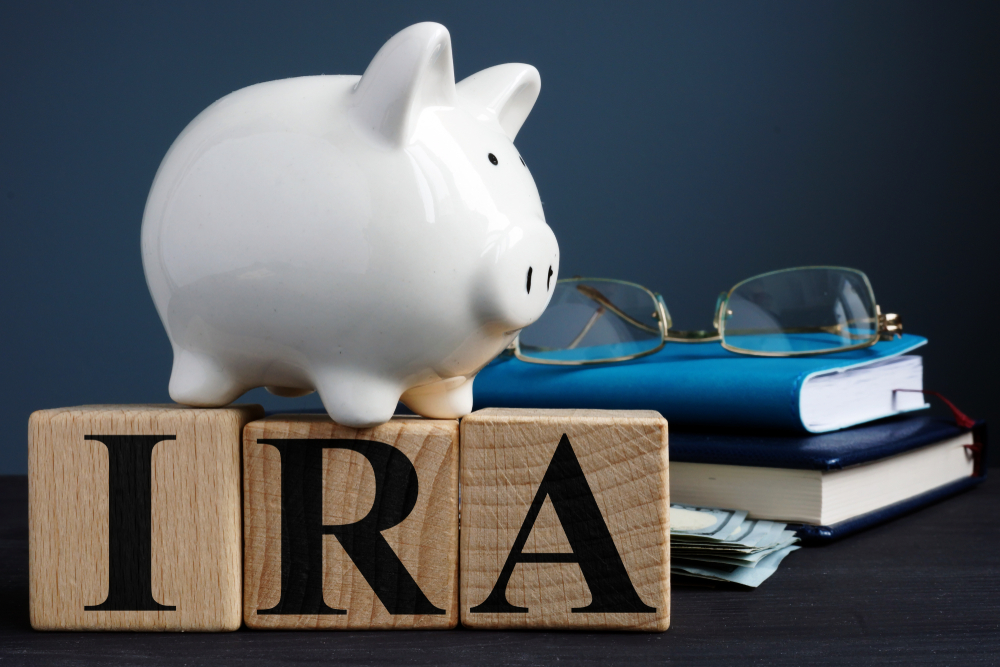Happy New Year! Are you one of the many Americans making New Year’s resolutions? New year, new you, right? Healthy, wealthy, and wise! About that middle word – wealthy. If you asked several people what “wealthy” means to them, you would probably get several answers. To some, it may mean yachting through the Mediterranean. To others, it may mean being able to take a family vacation. And still to others, it may mean being able to cover all expenses and still have money to contribute to a savings account.
During the financial hustle and bustle of life, many people forget (or do not think about) to set financial goals and put aside money and save – in other words, feed their pig. There are MANY ways to save money, and I am here to share with you ten good New Year’s resolutions and strategies that are easy to implement.
Budget is not a 4-letter word!
1. For and foremost, establish a budget! After all, how do you know where you are heading if you do not know where you are now? When clients come to me for help budgeting, I always ask for two months of bank statements and their income statement. I go through with my highlighters and separate transactions by category – e.g. eating out, personal spending money, gas, groceries, etc. I add it up and plug in the numbers. You can be as detailed as you need to be. Get a good budget sheet (searching “budget sheet” is a help), and plug in your numbers.
Tracking
2. The follow-up to this would be to find a way to track your expenses from here on out. The “right way” is the way that works for you, whether it be apps, cash/envelope system, pen and paper/notebook, Microsoft Excel, or any other motivational way with which you find success. Do this for three months, then tweak your numbers as needed.
Emergency Fund
3. Do you have a sufficient emergency/reserve fund? According to this Bankrate survey, “just 39% of Americans would pay for $1000 unexpected expense (like a health scare) from savings.” Experts recommend having three to six months in this account. What is the dollar amount that would make you feel comfortable? Once you have established this number, what can you put towards it every week or every month? How are you going to contribute? Directly from your paycheck? Automated from one account to another? Will you do the transfer once a week or month? Personally, I have an automatic transfer set up once a week. It is a smaller amount than once a month, so I do not miss the money. Patience is key here. You may not reach that comfortable number this year, but keep at it, and you WILL get there.
Get started on retirement
4. Establish and/or contribute to a retirement account. Taking this point a step further, are you maximizing your contributions to take full advantage of your employer’s matching contributions? If your employer is offering you a 3.5% match, you should be contributing AT LEAST 3.5% as well. Even if your employer does not offer a 401(k), or the like, you can open your own IRA. My tip/warning for this is (and any investment): Beware your expense ratio!
Tax Refund
5. Tax time is around the corner! If you are getting a refund, set aside all or a portion of your tax return. You can use this money to fund your savings account, contribute to your IRA, or pay down debts. What are your New Year’s resolutions? Write your goals and use a portion of this money to help you achieve them!
No-Spend
6. You have heard of “no spend November”? That’s asking a lot for most people. What about setting aside one day per week as a no spend day? For one day each week, cut spending on “wants” such as eating out, shopping, and grabbing that macchiato (if your rent is due, please pay that!). If you can do a full month, by all means do!
Is Your Savings Account Working For You?
7. Reevaluate your savings account. MANY banks offer interest rates below 1%. However, a quick search on bankrate.com (as of this writing on 12/31/18) shows 31 banks offering an interest rate of 2% or above! What interest rate is your bank giving you? If you are not ready to make the switch, consider calling your bank and asking if they offer such an account. As usual, be aware of the fine print – number of transactions allowed, fees, minimum balance, etc. Read about reasons to open a high-yield savings account.
Automate
8. Auto pay your bills. No need to accumulate late fees and more interest by missing payments. Take 30 minutes of less one day and set up your bills on auto pay. Not only are you saving money by not buying stamps, you are also gaining peace of mind by not missing a payment. And the credit score boost is not bad either.
Always Have a Plan
9. Plan out all your meals (and snacks!) each week, each paycheck, or each month. Go to the grocery store with your list and stick with it. To help combat those times when you just do not feel like cooking, meal prep ahead of time and/or make freezer meals. YouTube has a lot of videos about this topic. Going to the store focused and with your list will help you cut back (if not eliminate!) those last minute impulse buys.
Shop Around
10. Shop around for the best prices. When you reach your big-ticket purchase goals (new car? vacation? television?), do not ruin your hard work and settle for the first price you see! Bundle deals to get the best rate. Ask stores if they price match. See if anyone is selling on Craigslist or Facebook pages. Negotiate. Definitely get your credit score up to get the best interest rate if you are financing. By the way, shopping around is also true of smaller purchases such as groceries.
As I stated at the beginning, there are numerous ways to feed your pig. This is definitely not a comprehensive list! Make your financial New Year’s resolutions, and get the new year off to a savvy start! What have you personally done that has worked for you? Please share!




